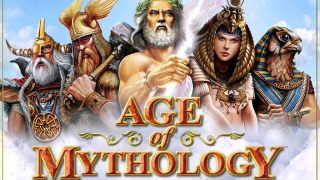Introducing mythology

Welcome to this post on Introducing mythology! As students of mythology, we are all excited to learn about the mysterious, baffling, as well as irritating, disgusting and sometimes very-humanly-and-ungodly exploits of these mythical beings. Here, we will learn a lot about the gods and goddesses, the demigods, the heroes and heroines, the monstrous creatures as well as lovely nymphs and maidens. Above all, we will get to learn on the customs and traditions of various societies who formulated these myths and how do they live their lives reflecting such cultural inclinations and beliefs. However, don’t get too excited, we might lose the thrill! For now, we must hold our reins and put everything in the proper perspective.
Intended learning outcomes (ILOs)
By the end of this topic, the learners shall be able to:
- define what is a myth, mythology and other related terms;
- recognize the prevalence of myths on the things we see around us; and
- appreciate the importance of myths.
What is a myth?
Myth is an account of the deeds of a god or of a supernatural being. It relates a supposed historical event or it serves “to explain some practice, belief, institution, or natural phenomenon.” Races, nations, tribes or localities often have their own myths.
For example, we have the Myth of Daedalus and Icarus is famous for its profound insight on man’s ingenuity, foresight and the fatal consequences of not following instructions. Daedalus is clearly not happy with being under the employ of King Minos, a despot who utilized his superb architectural talents to serve his own personal whim.
Mythology is an interwoven series of myths, told by a given race. It also means the study of myths in general. This we can suppose the Greek mythology as an excellent example here. Of course, we cannot discount the Roman Mythology, Norse Mythology, Egyptian Mythology and Hindu Mythology. These aforementioned mythologies are the objects of our mythology and folklore studies. So enjoy!
Why do we study mythology?
Without knowledge of the ancient Greek and Roman myths, one cannot understand literature – neither the classical literature of the Romans that is still the cornerstone of education in our secondary schools nor the great English and American literatures.
For into these myths went the genius of the old Greeks and Romans. In them are expressed the yearnings, the fears, the hopes, and the dreams that are essential part of human nature, yesterday, today and tomorrow. Myths are by no means stories created at random, mere fancies without particular significance and easily replaced by other idle fancies. Generation after generation, innumerable minds have sifted them and altered them, until they express many ideas and ideals deep in our hearts.
An ancient myth is rarely the creation of a single person. Possibly some individual first created the germ of a particular myth. But his fellow, then and later, cherished his idea, polished it, perfected it, so that in the end it was the work of a clan rather than one person.
Moreover, although the myths are often lovely and entrancing stories, they were originally much more than stories. They were explanations to various observable phenomena which, the early minds are not yet capable of explaining them the way modern science can.
All nations have their myths, and we all love to mythologize. But these Greeks and Roman creations still walk the pages of our finest literatures and are immortalized in our arts and music and are referred to in our daily writings and conversations.
The importance of myths
- Myths have such a deep influence on all great literatures. The great writers of our language have been fascinated by the stories that these ancient people told.
- Mythology is intertwined with music. Music itself is derived from the Muses, daughters of Zeus and Mnemosyne. Numerous myths explain the origin of musical instruments when Hermes invented the lyre, Apollo invented the reed, but Hermes exchanged the lyre for the Caduceus staff of Apollo, among others. Compositions and opera materials are mostly derived from myths such as Jason and Medea, Orpheus and Eurydice a well as Iphigenia and more.
- Myths have influenced the arts. The great painters and sculptors of all ages, like the great musicians, have found in these ancient legends inspiration for their finest crafts. Venus de Milo and Discus Thrower are best sculptures in the world, while Birth of Venus and Judgment of Paris are best paintings in the world.
- Myths are source of entertainment. Myths are both beautiful and entertaining which appeal to our imagination for all ages. Often, they carry a kernel of allegorical truth, ounce of amusement, striking plots and remarkable characters.
- Myths are important link to the past. They are often our only source of knowledge as to how our distant forebears regarded the world around them and how they explained the innumerable phenomena happening at their very eyes.
- Myths contributed words to our language. Our everyday language is full of term that go back to these myths of old. Cereal is derived from the goddess of agriculture and harvest Ceres; days of the week such as Thursday is from Thor, Norse god of thunder; month of June from Juno, the queen of Roman gods and so on.
References
- Bendix, Regina F. (2012). A Companion To Folklore. Massachusetts: Wiley – Blackwell Publishing
- Hamilton, Edith (2012). Mythology : Timeless Tales of Gods and Heroes. New York: Grand Central Publishing
- Harris, Stephen L. (2012). Classical Mythology: Images And Insights. New York: Mac Graw-Hill.